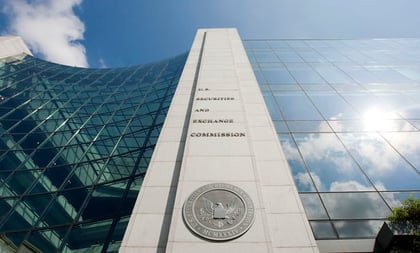The Securities and Exchange Commission charged a New Jersey-based broker with misusing his access to customers’ brokerage accounts to enrich himself and family members at the expense of his customers, many of whom had entrusted him with their retirement accounts.
The SEC’s complaint alleges that Michael Bressman, a securities broker, misused his access to an omnibus or “allocation” account to obtain at least $700,000 in illicit trading profits over a six-year period ending in February.
Bressman was working at FCG Advisors in Chatham, New Jersey, at the time of the alleged scheme, and prior to that worked at Merrill Lynch in New York City, according to BrokerCheck.
According to the SEC, Bressman placed trades using the allocation account and cherry-picked profitable trades, which he then transferred to his own account and the account of two family members, while placing unprofitable trades in other customers’ accounts.
Most of these customers were retail investors with relatively modest investment portfolios, the SEC says. According to the SEC, Bressman’s customers received approximately $750,000 less than they would have absent Bressman’s scheme.
The SEC uncovered the alleged fraud by using data analysis to detect suspicious trading patterns.
“We will continue to develop and use data analytics to root out cherry-picking and other frauds,” said Joseph Sansone, chief of the SEC Enforcement Division’s Market Abuse Unit, in a statement.
The SEC’s complaint charged Bressman with violating antifraud provisions of the federal securities laws and a related SEC antifraud rule. The SEC is seeking return of allegedly ill-gotten gains, plus interest, penalties and a permanent injunction.
In a parallel action, the U.S. Attorney’s Office for the District of Massachusetts announced criminal charges against Bressman.
BD Fined $2.75M for Deficient Blue Sheet Data
The SEC announced that Convergex Execution Solutions, now known as Cowen Execution Services, will pay $2.75 million to settle charges that the broker-dealer firm provided the SEC with incomplete and deficient securities trading information known as blue sheet data.
According to the SEC’s order, for nearly four years as a result of coding errors, a substantial number of the firm’s “blue sheet” submissions were missing data or contained deficiencies, including customer identifying information, order execution times, exchange codes, transaction type identifiers and other trade information.
Approximately 29% of Convergex’s submissions contained deficient customer identifying information from May 1, 2012, to Feb. 28, 2016. Although the Financial Industry Regulatory Authority sanctioned Convergex in March 2012 for deficient blue sheet submissions, the SEC’s order found that the firm did not take reasonable steps to ensure that its blue sheet submissions to the SEC contained complete and accurate information and failed to identify the deficiencies during this period.
“Broker-dealers must ensure they submit complete and accurate blue sheet data to the SEC because the failure to do so can hinder our ability to detect wrongdoing and protect investors,” said Joseph G. Sansone, chief of the SEC’s Market Abuse Unit.
The SEC’s order finds that Convergex willfully violated the broker-dealer books and records and reporting provisions. Convergex admitted the findings in the SEC’s cease-and-desist order and agreed to be censured and pay a $2.75 million penalty.
SEC Charges Crypto Asset Manager
The SEC announced its first-ever enforcement action finding an investment company registration violation by a hedge fund manager based on its investments in digital assets.
The SEC entered an order finding that Crypto Asset Management offered a fund that operated as an unregistered investment company while falsely marketing it as the “first regulated crypto asset fund in the United States.”









 September 14, 2018 at 10:32 AM
September 14, 2018 at 10:32 AM











